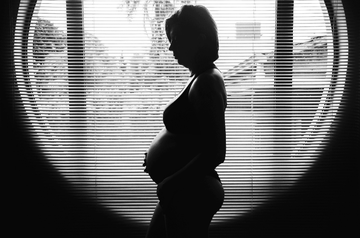Woman Inmates: The Right To Choose, For All Aspects
The recent Bombay High Court judgment extending the provisions of the Medical Termination of Pregnancy Act, is a landmark ruling in more ways than one. Firstly, this judgment was delivered ‘suo moto’ while taking cognizance of a news report about pregnant prisoner women who were not taken to hospitals, despite informing the jail authorities of their wish to terminate pregnancy. Secondly, it endorses the right of a woman to "lead a life of her choice".
Who it impacts?
In one fell swoop, the Court has shed light on a hitherto grey area. Despite legal safeguards, woman’s choices are severely limited by social traditions and practices and is impacted by unwritten and deep entrenched customs. For women lodged in prison, the options available are minimal. They face such condemnation that it affects their psyche. What is offered by the system is considered best and the narrowing choices chip away at their dignity, steal their voice and dreams.
What is the impact?
The court ruled that the scope of this judgment should extend to the "mental health" of a woman and that this right emerges from her right to live with dignity as a human being in society and is protected as a fundamental right under Article 21 of the Constitution".
This is not only about the reproductive health of a woman inmate, but their life choices. This should extend to ensuring that women have choice to be educated and trained. Being skilled gives the power of choice, a greater claim over life and self-esteem. The skills provided should not only train women but educate them about their rights and resources. They can be guided to manage and plan her future financially, to access digital resources, communication skills and conflicts.
Every prison rehabilitation program has to focus on employable skills and inculcating life skills. They need to help women to have a normal life when they are back into the society. Positive thoughts and confidence should be inculcated in the women.
How can this impact be created?
Can a prisoner find reform and growth instead of ignominy and disgrace? Can an alienated woman contribute to society and raise well-adjusted families instead of going back to a life of ineptitude and embarrassment? Yes, she can if the prison term is considered corrective instead of retributive.
This is not an idealistic dream that sounds good on paper. Prison rehabilitation programs can be run as social initiatives that work with committed stakeholders across the spectrum. It requires engagement, execution, and integration. There are plenty of community participators who can take this forward. All we need is the will to carry this forward and ensure the legal safeguards for its accountability. Rehabilitation is not the end, it’s only the beginning.














